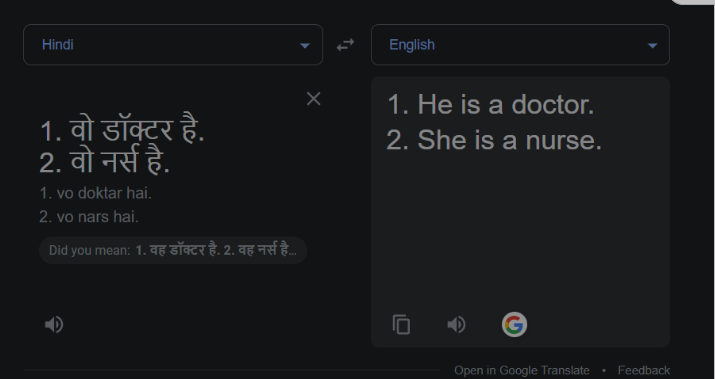Uncertainty and the Bayesian Brain#
Discussion:#
What is common about the following sentences:
Sinduja is always late for parties.
It usually rains very heavily here in the first week of July.
Our team never wins when we start to lose wickets early.
In English words, ‘i’ always comes after ‘e’ except after ‘c’ or when pronounced as ‘AY’ such as in ‘neigh’ or ‘weigh’
Refresher: Bayesian Reasoning#

Activity/Discussion:#
A doctor faced with a patient having a cough (D = Data) has to make a decision about the most likely cause for the symptoms from three hypotheses: a lung cancer (H1), a cold (H2) or gastroenteritis (H3). How would you try and approach this problem?
Judgements under uncertainty: Ambiguous Motion#
Video: The Bayesian Brain#
Discussion:#
When can making predictions be a bad thing?
The Ethics of Bias#
Discussion:#
Are some kinds of biases essential to make decisions? When must we be wary of our biases?
The Hindi sentence “Wo doctor hai.” is a gender-neutral way to say “that person is a doctor.” Similarly “Wo nurse hai.” is a gender-neutral way to say “that person is a nurse.” Yet entering these sentences in google translate gives the results shown below. Why might this be the case? Would you say this is acceptable?

